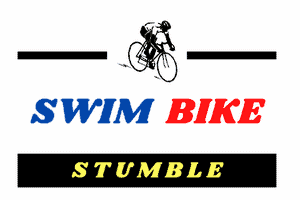You’ve been wanting to try an off-road triathlon but you’re not sure where to start. The obvious answer is it starts with getting a mountain bike and learning mountain bike skills. Most off-road triathlons are still swim, bike, run and mountain biking is the biggest difference. For tips on getting a mountain bike see my Getting Started Mountain Biking in the Off Season post.
Once you acquire the mountain bike, you will need to learn a whole new set of bike skills. You have plenty of options. You can get with your mountain biking buddies, get some mountain bike buddies, watch some YouTube videos and practice the moves in your backyard.
Another option is to attend a mountain bike clinic. I’ve explored all of these options including attending a recent mountain bike clinic put on my Steve Baker and Samantha Smith in nearby (to me) Travelers Rest, SC. The clinic was awesome. I think it would be accurate to say that I doubled or tripled my mountain bike knowledge and dramatically increased my mountain bike skills in a single day.
So if you are within reasonable driving distance to Greenville SC and yes, an overnight stay would be worth it, catch one of Steve’s and Sam’s clinics. If your current position on the planet makes the trip impossible, find a clinic near you. If there isn’t one, network with your local mountain bikers and get one started.
The clinic I attended included basics like position on the bike, braking, bike/body separation. Next came basic drills like ratcheting, trackstands and slalom. Then things ramped up a bit with front wheel lifts, power front wheel lifts, rear wheel lifts, the rock dodge, switchbacks, power climbs, climbing switchbacks and the bunny hop. And while I have not mastered these skills, at least now I know what to work on in my backyard. To be completely honest, I will be working on rear wheel lifts and bunny hops for a long, long time.
We had a great group of participants and skill levels varied greatly. Steve and Sam were able to get everyone moving in a positive direction. It was exciting to see several riders quickly and easily incorporate the skills into their repertoire. I’m looking at you Barry. And thanks for motivating me to attend.
What I liked best about the clinic was not only were we taught the skills and given an opportunity to practice them under the patient watchful eyes of skilled instructors but we also learned how, when and why we would employ them on the trail. I wish my professional continuing education classes were this well put together.
Off Road Triathlon Tips
I also contacted Derek Tingle, 2017 XTERRA Southeast Regional points champion and competitor in the XTERRA World Championships for some off-road triathlon tips. Below are his thoughts on essential gear and how to handle hydration and nutrition.
Gloves: I never wear gloves in a street triathlon but depending on things like how rocky/wet the trails are, a good set of grippy fully finger gloves will keep your hands in place on the bars over rough terrain.
Shoes: There aren’t any (at least that I’ve found) off road triathlon shoes available so you have to make due with regular mtb shoes or improvise. I actually run road pedals and road shoes for most Xterra events unless it’s really muddy. It’s kind of awkward to get clipped back in if you have to come out but it works for me.
Glasses: Always wear some sort of glasses off road. You never know what kind of limbs, spiderwebs, bugs, etc. you’ll run into on the trails. Clear or light lenses are always a good bet for really shady trails.
Socks: Although I typically forego the socks in all triathlons, they can be a really good idea for off road because of all the grit that can get into your shoes.
Racing: When it comes to the race itself, the best thing to remember is that it’s going to be much harder to eat and drink on the bike so I recommend some sort of hydration pack. I actually use a product from Speedfil that has a long straw and I mount it on the frame. I just don’t like backpacks. Either way, something like that so you don’t have to reach down to get the bottle.
Hydration and Nutrition: Also, make sure you have enough hydration or calories because you are going to be going slower. A 10 mile bike on the road might take 30-40 minutes but double that (at best) for dirt.
Steve Baker is a former marketing executive turned author, mentor and Upstate cycling ambassador. He is currently the owner of Square One Events, a full-service event management company specializing in the creation and execution of athletic events for adults and kids. With over 30 years of road and mountain bicycle training and racing experience, Steve has achieved an intimate understanding of the many facets and disciplines in the sport.
Samantha Smith has several state championships and a gold medal at the 2001 Amateur Mountain Bike World Championships in Vail, CO. She competed in the grueling 8-day, 800 km Cape Epic mountain bike race in South Africa in 2007. Sam is also a respected Sports Massage Therapist and Personal Trainer with over 20 years of experience in functional core strength and flexibility training.
Derek Tingle decided to change his life through diet and exercise and lost 90 lbs. He soon began training for endurance sports. Triathlon became his passion, particularly off-road racing. Derek is the the 2017 XTERRA Southeast Region Points Champion and competed in the XTERRA World Championship in Maui.

Thanks to Steve Baker, Samantha Smith, Derek Tingle, and Dave Qureshi at SpeedShop Bicycles for their help in putting together this blog post.










Good stuff certainly but where in England is there an OFF ROAD TRi. I can only find them in Scotland.
I will see if I can find some information for you.